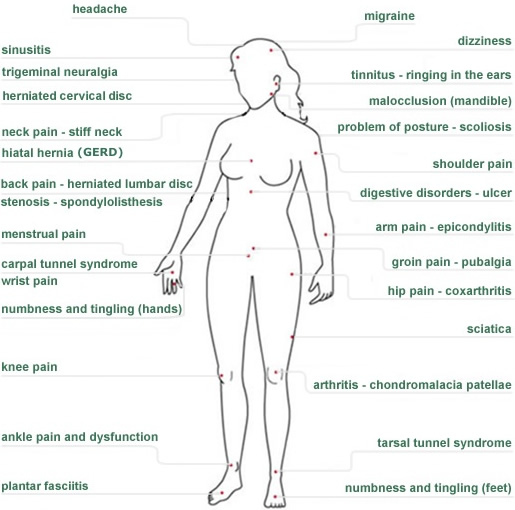Allergies
ALLERGIES
Spring is here and the weather is finally warming up. For many, this excitement is dampened by the fact that allergies are also on the way. Why do people get allergies anyway? Is it really all about ragweed and pollen? Are the only real options resorting to Benadryl or moving to Arizona for relief?
Fortunately there are natural approaches to getting allergies under control, and in doing so, your entire state of health will also improve.
Histamine
People who suffer from allergies have elevated histamine levels in their bodies. We’ve all heard of people taking anti-histamines but what is histamine exactly? Is it a bad thing? Sounds like it if people are taking anti-histamines.
Well not exactly. Histamines are part of our body's defense system. The word ‘histamine’ is derived from the Greek word ‘histos’, meaning tissue. Histamines are microscopic nitrogenous compounds that are found in several tissues throughout the body. Histamine plays different roles depending on which part of the body it resides. Most histamine in our bodies is found in white blood cells and is released in response to allergens. For example, if an allergen is on our skin, histamine will be released to make us itch and scratch the problem away. If allergens enter our bodies, histamine will cause us to sneeze out the allergen, or expel it through tears in our eyes or through a runny nose.
Histamine is a neurotransmitter, and as such it is found in the brain. Here it is involved with our sleep-wake cycle, and is needed to maintain vigilance, appetite, motivation, learning, memory, and sexual behavior. In our stomach, histamine stimulates acid secretion which aids in digesting food.
Excess Histamine
An itch and a sneeze here and there, no big deal. The real problems occur when our histamine levels are elevated on a prolonged basis. Symptoms of elevated histamine can manifest in a number of ways. The following list describes some of the more common symptoms associated with elevated histamine:
- Pain anywhere in the body
- Depression
- Anxiety
- Itchiness on skin, eyes, nose, throat, mouth, vagina
- Runny nose
- Sneezing fits
- Sore throat
Asthma or asthma-like symptoms - Red swollen eyes
- Hives
- Motion sickness / dizziness
- Diarrhea
- Indigestion / irritable bowel
- Heart palpitations / irregular beats
- Headaches
- Low blood pressure
- Decreased libido
- Erectile dysfunction
- Hypersensitive nipples, genitalia and aversion to sexual activity
What makes histamine levels become too high?
There are 3 causes of excess histamine:
- Allergies (food and airborne).
- Intake of foods with high histamine.
- Impaired ability to break down histamine due to either nutritional deficiencies or genetic variants.
Let’s look at one at a time…
I. ALLERGIES:
Unless we relocate to an arid climate, or walk around with a mask, we generally have little control over the allergens in our environment. However, we can control what we eat. By eliminating the wrong foods from our diets and introducing the right ones, we can begin to live an allergy-free life. Some of the most common food offenders include cow’s milk, wheat, gluten, soy, yeast, corn, and eggs; however, food sensitivity is very individualized. Moreover, food allergies can change depending on one’s state of health.
A qualified Applied Kinesiologist can help you to determine which foods do not agree. However, your body will often give you clues either while you’re eating the wrong food or soon after i.e., heart palpitations, sudden pains anywhere in the body, sudden sneeze etc.
II. FOOD & HISTAMINE:
Histamine Containing Foods vs. Histamine Releasing Foods
Some foods provoke our bodies to release excess histamine and some foods contain high levels of histamine:
Histamine Containing Foods:
- Fermented alcoholic beverages: esp. wine, champagne, and beer.
- Fermented foods: sauerkraut, soy sauce, vinegar, kefir, yogurt, kombucha, etc.
- Vinegar containing foods: pickles, mayo, olives.
- Cured meats: bacon, salami, pepperoni, luncheon meats, and hot dogs.
- Soured foods: sour cream, soured milk, buttermilk, soured bread, etc.
- Dried fruit: apricot, dates, prunes, dates, raisins, figs.
- Most citrus fruits.
- Aged cheese including goat’s cheese.
- Nuts: walnuts, cashews, peanuts.
- Veggies: avocado, eggplant, spinach, tomato.
- Smoked fish and certain species of fish: mackerel, mahi-mahi, tuna, anchovies, sardines.
Histamine releasing foods:
- Alcohol
- Bananas
- Chocolate
- Cow’s milk
- Nuts
- Papaya
- Pineapple
- Shellfish
- Strawberries
- Tomatoes
- Wheat germ
- Many artificial preservatives and dyes
Of course, no one wants a list of foods they can’t eat without having alternatives. So here is a list of foods that are low in histamine:
Low Histamine Foods:
- Freshly cooked meat or poultry
- Freshly caught fish
- Cooked eggs
- Gluten free grains, rice quinoa, corn, millet, amaranth, teff
- Pure peanut butter
- Fresh fruits: mango, pear, watermelon, apple, kiwi, cantaloupe, grapes
- Fresh veg: (except tomatoes, spinach, avocado, and eggplant)
- Cooking oils: olive, coconut
- Leafy herbs
- Herbal teas
III. HISTAMINE BREAKDOWN:
Finally, histamine levels may be elevated because the body’s ability to break it down may be impaired. This can come from genetic variants and / or nutritional needs. The key nutrients to assist in the metabolism of histamine include:
- Vitamin B-6
- Folic Acid
- Spleen tissue
- Quercetin
- Vitamin C
- Betaine
Nutrients that inhibit the release of histamine include:
- Vitamin C
- Quercetin
- Bromelain
- Stinging Nettle (Urtica Dioica)
In addition, certain foods contain a flavonoid called luteolin which inhibits the release of histamine. Luteolin can be found in broccoli, carrots, parsley, peppermint, thyme, basil herb, celery, artichoke, green peppers, and chamomile tea.
While allergy medications like Benadryl, Zyrtec, and Allegra may provide temporary relief, the side effects, both long and short term, should not be taken lightly. Moreover, taking medication to suppress symptoms is sweeping the underlying problem under the rug. It pays to investigate your unique nutritional needs and enjoy lasting relief from allergies.

 SCHEDULE AN APPOINTMENT
SCHEDULE AN APPOINTMENT









